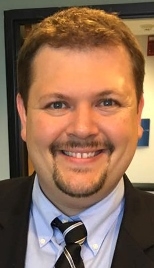The Education Committee and Graduate Subcommittee are pleased to announce the recently named recipients of Supplemental Training for Education Program (STEP) awards. This program provides funding for graduate students who have advanced to candidacy to engage in an activity they propose that will enhance their skills for their professional path of choice.
 Rosa Chan
Rosa Chan
Rosa Chan from the University of California San Francisco will be participating in the Certara SymCyp Workshop: Model-informed Drug Development, in San Francisco, California, during July. The focus of the workshop is incorporating population variability into mechanistic prediction of PK and modeling PK-PD. Her career goal is to bridge the gap between in vitro toxicology assays and PK/PD analysis to allow for more rapid translation of therapeutic targets. She is currently investigating the potential of the Biopharmaceutics Drug Disposition Classification System (BDDCS) as a methodology for evaluating toxicological outcomes of therapeutic agents. This research advances the understanding of toxicities associated with the liver and the skin, the two organs most commonly involved in serious adverse drug reactions.
 Phillip Clapp
Phillip Clapp
Phillip Clapp will receive one-on-one training during July with Dr. Marianne Geiser from the Institute of Anatomy, Universität Bern, in Switzerland. She developed the Nano Aerosol Chamber for In Vitro Toxicity (NACIVT) that uniquely uses electrostatic deposition to achieve physiologically-relevant nanoparticle concentrations at the mucosal surface. This allows for realistic in vitro toxicity studies in a high-throughput format for dose-response studies of nanoparticles in well-differentiated bronchial epithelial cell culture. A student at University of North Carolina Chapel Hill, his current research and training focuses on inhalation toxicology of e-cigarette flavoring agents. His career goal is to lead an academic lab focused on identifying how inhaled toxicants, such as nanomaterials, modulate respiratory immune responses.
 Stephanie Marco
Stephanie Marco
Stephanie Marco from Rutgers University will attend Postmortem Interpretive Toxicology offered by The Center for Forensics Science and Research Education in Philadelphia, Pennsylvania, during June. With the desire to pursue a career in postmortem forensic toxicology, this course will review the complex range of considerations required in selection and collection of samples, analysis, and reporting and interpreting results. Topics include all aspects of toxicological death investigation as well as a review of the pharmacology and toxicology of drug categories found in toxic deaths. Her current research involves the assessment of organophosphate flame retardants' (OPFRs’) interaction with molecular targets (AChE), metabolizing enzymes (CES), and transporters (MDR1 and BCRP). Her honors thesis at the University of New Haven explored identification of ketamine in malt beverages used in drug-facilitated sexual assault using handheld Raman spectroscopy.

Corie Robinson
Corie Robinson will be participating in the Introductory GastroPlus Simulation and Modeling Workshop at Simulations Plus in Cambridge, Massachusetts, in September. The hands-on course will provide a working knowledge of the basic theories and application of simulation and modeling software for the analysis of drug dissolution and absorption, coupled with pharmacokinetics and pharmacodynamics. She will have the opportunity to advance her PK/PD knowledge and software modeling skill set for use in her career field of interest, drug discovery and development, as well as network with people that field. At the Louisiana State University Health Sciences Center, her research involves analyzing the transport and kinetic mechanisms of diglycolic acid as the underlying cause of diethylene glycol toxicity using cell culture of primary human proximal tubule cells and radiolabeled transport and efflux studies.
We encourage graduate students to develop proposals now for October 9, 2017, deadline for STEP applications.